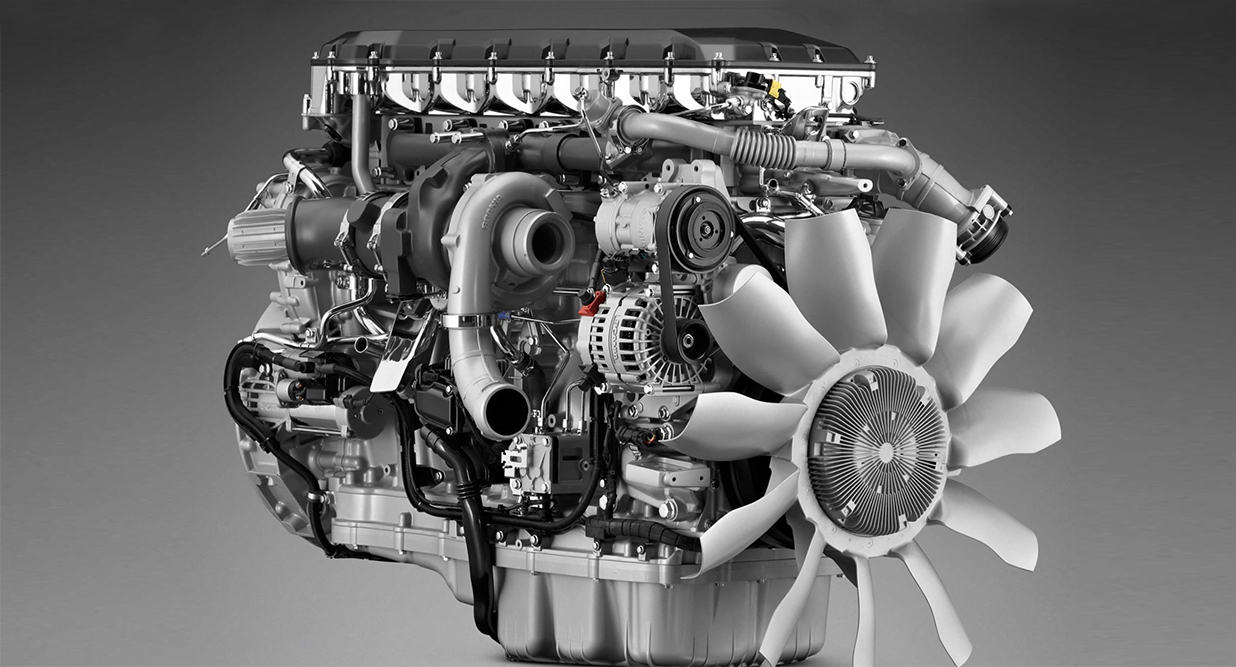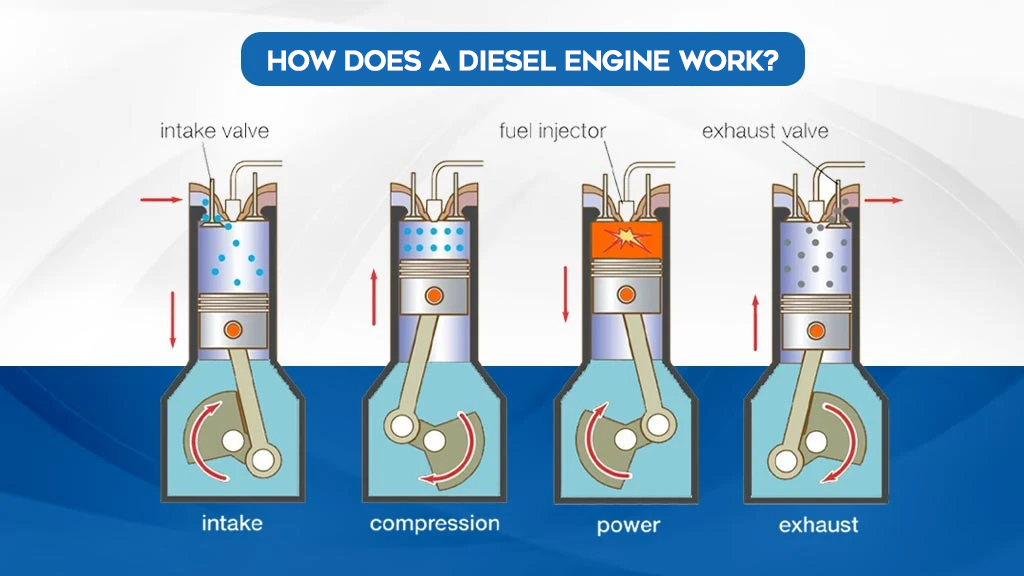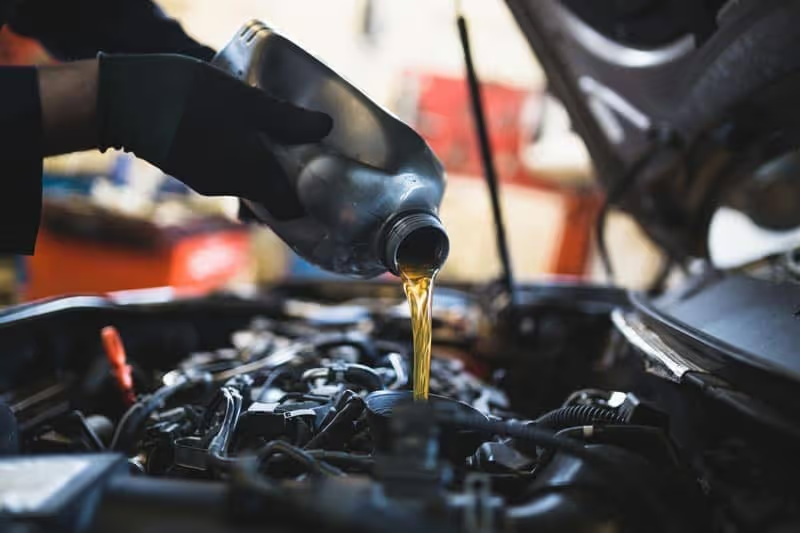How to maintain a diesel engine?
Do you own a diesel car or diesel pickup? Diesel engines are known for their powerful torque and excellent fuel economy, but without proper diesel maintenance, their lifespan and performance can be greatly compromised.
Unlike gasoline engines, the structure and working method of diesel engines determine that they require more detailed maintenance. If you want your diesel engine to last longer, you must know how to maintain it. This article will provide you with a complete diesel car maintenance checklist to help you avoid expensive diesel engine repairs.

How does a diesel engine work?
To understand how to maintain a diesel engine, you first need to understand how it works. Diesel engines operate on a four-step internal combustion cycle:
1. Intake: The piston moves downward, drawing air into the cylinder.
2. Compression: The piston moves upward, compressing the air, which raises the air temperature. Diesel is injected before the piston reaches the top.
3. Power stroke: The heat ignites the fuel, forcing the piston downward.
4. Exhaust: The piston pushes the exhaust gases out as it moves upward.
Unlike gasoline engines, this process does not require a spark plug. Diesel engines have higher compression ratios, are more efficient, and have more torque, making them ideal for heavy trucks.

Why do diesel engines require special maintenance?
Diesel engines are more durable than gasoline engines, but their high-pressure fuel system, turbocharger (if equipped) and emission control system require more stringent maintenance. Ignoring diesel maintenance may lead to:
lDPF (diesel particulate filter) blockage (resulting in reduced power and increased fuel consumption)
lInjector nozzle blockage (diesel is more sensitive to impurities)
lEGR valve carbon deposition (affects combustion efficiency)
lTurbocharger damage (poor oil quality will accelerate wear)
How to maintain a diesel engine?
1. Regularly change the oil and filter
Changing the oil is the basis of good maintenance. Diesel engines have higher working pressures and run at higher temperatures, and the oil is more easily contaminated. Recommendations:
lChange every 8,000-10,000 kilometers or 6 months (more frequently than gasoline vehicles)
lUse diesel-specific oil that meets API CJ-4/CK-4 or ACEA standards
lReplace the oil filter and fuel filter at the same time
2. Cooling system inspection
Checking the coolant and radiator is essential to maintaining the engine's cooling system. Coolant and antifreeze protect diesel engines and their components from damage due to overheating or freezing.
lReplace coolant and antifreeze every 2 years
lCheck whether the water pump and belt are aging
3. Air filter maintenance
The air filter blocks harmful pollutants from entering the engine, ensuring clean air. A dirty air filter reduces power and fuel efficiency.
lCheck the air filter regularly and clean it if it is dirty or clogged.
lReplace the air filter according to the manufacturer's recommendations or if it is too dirty.
4. Turbocharger maintenance
Turbocharged diesel engines require extra attention:
lAvoid high-speed driving immediately after a cold start (let the oil fully lubricate the turbine)
lIdle for 1-2 minutes before turning off the engine after a long period of high-speed driving (to prevent the turbine from overheating and damage)
5. Emission system maintenance
Modern diesel vehicles are equipped with DPF (particulate filter), SCR (urea injection system), etc. Improper maintenance can cause torque limit and fault lights to turn on.
lAvoid long-term short-distance driving (DPF requires high temperature to regenerate)
lUse qualified urea solution (SCR system relies on it to reduce emissions)

Diesel vehicle maintenance schedule
|
Items |
Recommended cycle |
|
Engine oil + filter replacement |
8,000-10,000 km |
|
Fuel filter replacement |
20,000 km |
|
Air filter inspection/replacement |
20,000-30,000 km |
|
DPF active regeneration (if applicable) |
According to vehicle prompts |
|
Turbocharger inspection |
Every 50,000 km |
|
Timing belt replacement (if applicable) |
80,000-120,000 km |
Summary
Although diesel engines are more durable than gasoline engines, diesel maintenance requires higher standards. Whether it is a diesel pickup or a family diesel car, only by following scientific maintenance methods can you avoid diesel engine repair.
Remember this diesel car maintenance checklist, and your car will go further with you!
FAQ
1. How to avoid expensive diesel engine repair
lReplace three filters strictly according to the maintenance cycle
lUse high-quality diesel and engine oil
lAvoid long-term low-speed driving
2. Do diesel engines last longer (Are diesel engines really more durable)
Yes! Diesel engines have low speeds and high combustion efficiency, and their design life is usually 30%-50% longer than that of gasoline engines. But the premise is to do a good job of diesel engine maintenance, otherwise the high-pressure fuel system may be damaged prematurely.
3. Are diesel vehicles suitable for short-distance commuting?
Not recommended! Diesel engines require sufficient operating temperature to fully burn and complete DPF regeneration.
